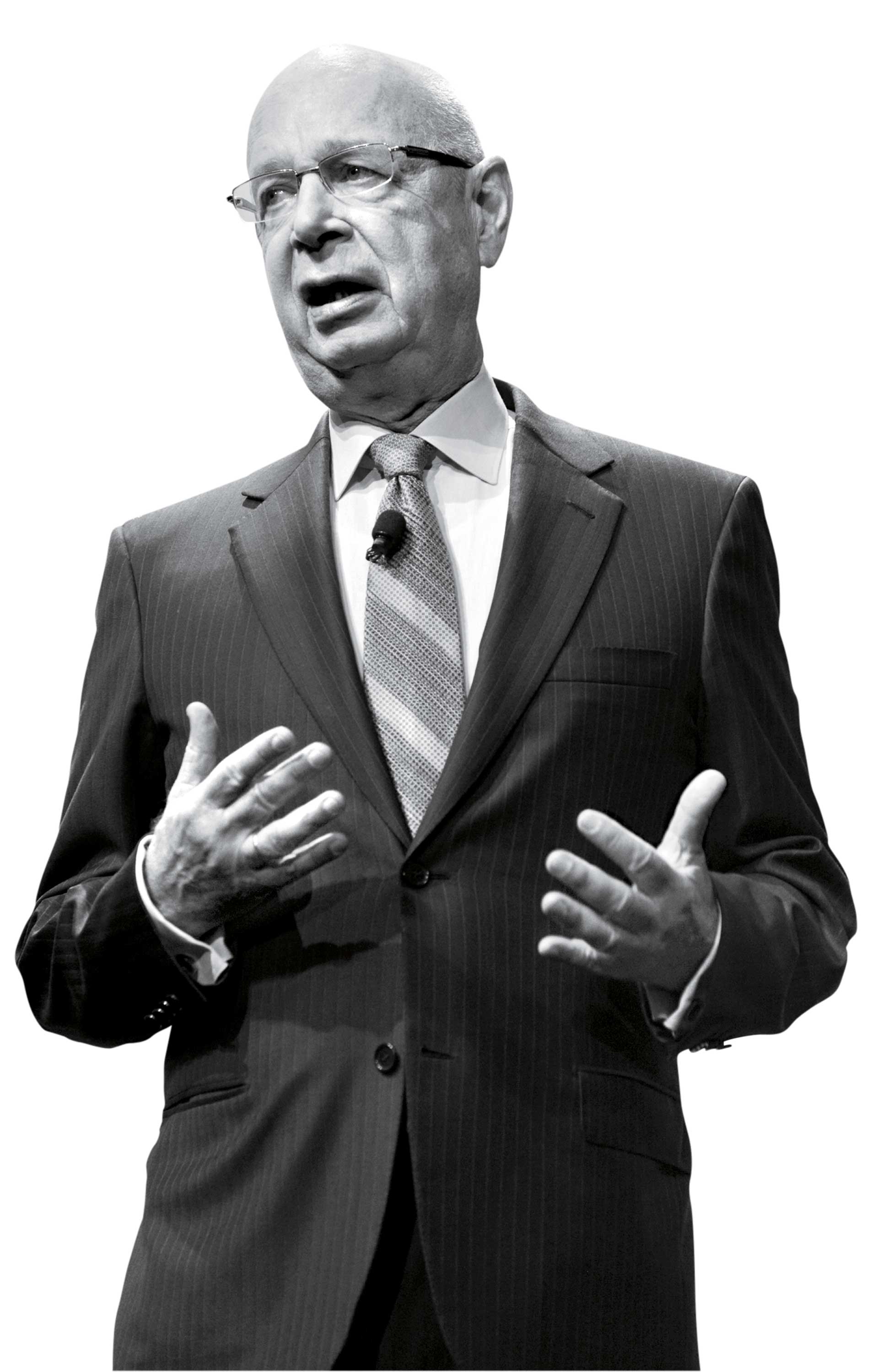
What will be the big topic at Davos this year?
We are at the tipping point of a whole variety of interconnected technological breakthroughs: robots, drones, intelligent cities, artificial intelligence, brain research. What differentiates the fourth industrial revolution is that it’s not a product revolution. It’s a system revolution. What we want to do in Davos is provide an overview of the implications of this revolution on governments, business and individuals. No one is thinking about long-term consequences.
Like what?
If we do not want to be dominated by technology, we have to become a more human society. What leadership style, what capabilities, do we need to master all these technologies? I believe we need to emphasize the more human aspect in leadership as a counterweight to all of these technological advances.
If you think about what a human being is, we exist because of brains, soul, heart. What we can replicate in a robot is the brain. But you never will replicate the heart, which is passion, compassion. And the soul, which enables us to believe. The robot will never have the ability to believe in something. So perhaps we will have at the end of this revolution–possibly, possibly–a basis for a new human renaissance.
Two events dominated the news late last year in Paris. One was a terror attack; the other was a landmark multinational agreement on climate change. Can you talk about both?
On terror: in the past you needed big armies to do a lot of damage. Today one individual can do a lot of harm. The fourth revolution will challenge the capacity of people to digest change. People will be overwhelmed by all of the change. So they look for simple solutions. Of course there are a lot of people selling those, in democratic systems and extreme societies alike.
And climate change?
What happened was very positive. Governments and businesses worked together. When Davos began, we were trying to get all stakeholders to the table to work on problems. Paris vindicated the stakeholder concept. But we now have to move from validation to implementation.
Immigration is a huge challenge all around the world right now–
It’s another reason to emphasize the human dimension and the values we stand for. As far as Europe is concerned, I am worried. I belong to the first generation of Europeans. For us, the basic idea was no war again. Our first priority was a European identity, not a national one.
Is that changing?
There is a new generation, and its first priority has become the national identity. Europe has become No. 2. Which means if there is a conflict between the European interest and the national interest, the choice looks different. In the past, they would have been willing to make sacrifices.
What do you make of the uncertainty in China?
China has now grown to be an economy of $10 trillion in GDP. So if you add 7% a year, that corresponds to adding the entire economy of Switzerland every year. It is not sustainable. There is a natural tendency to slow down, and that is what we are seeing now. It is a challenge.
Is it a manageable challenge?
I have been in China about 100 times since 1979. I have seen and heard it said so many times: It cannot go on, and China will collapse, and so on. China has proved always to the contrary.
More Must-Reads from TIME
- Cybersecurity Experts Are Sounding the Alarm on DOGE
- Meet the 2025 Women of the Year
- The Harsh Truth About Disability Inclusion
- Why Do More Young Adults Have Cancer?
- Colman Domingo Leads With Radical Love
- How to Get Better at Doing Things Alone
- Michelle Zauner Stares Down the Darkness
Contact us at letters@time.com